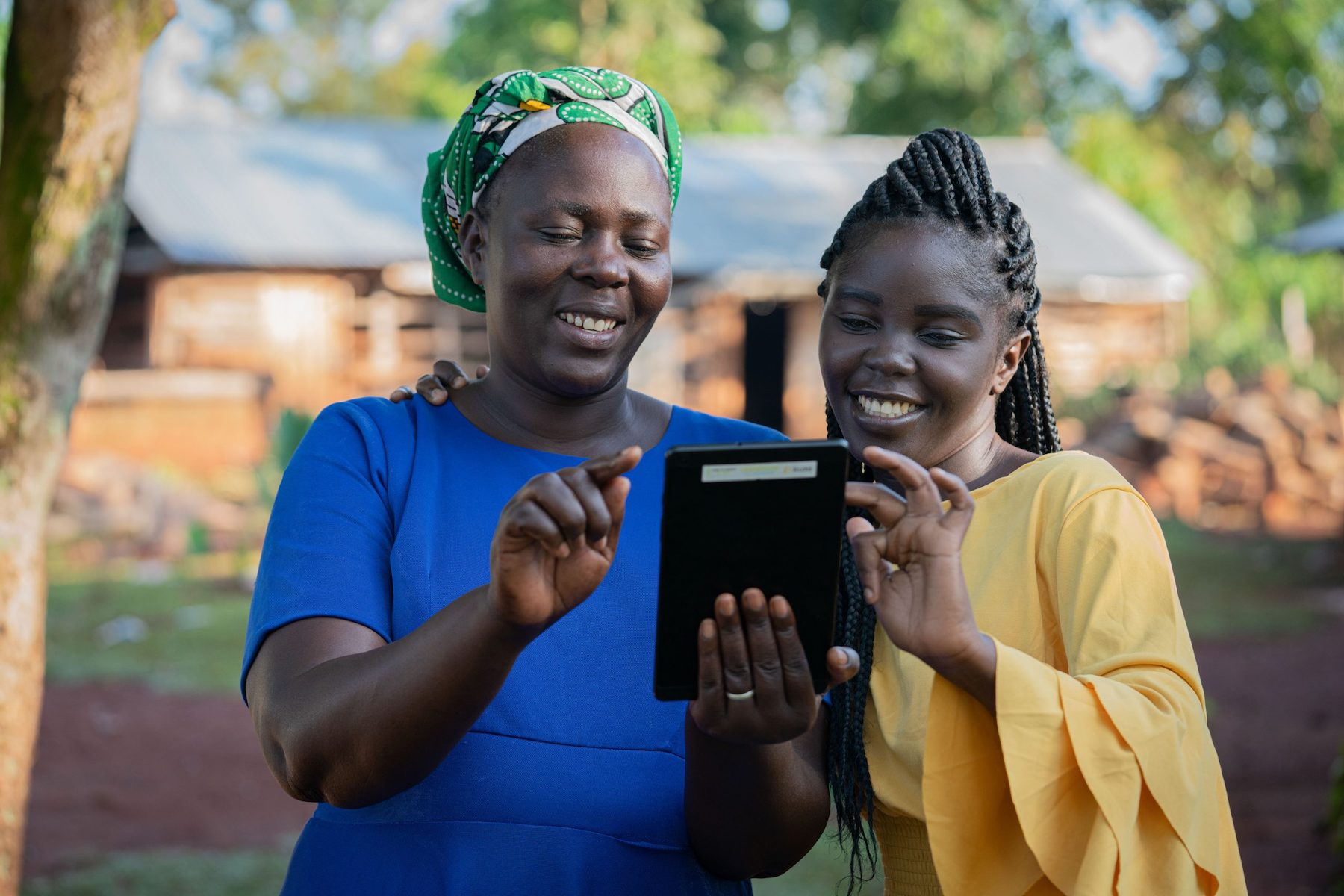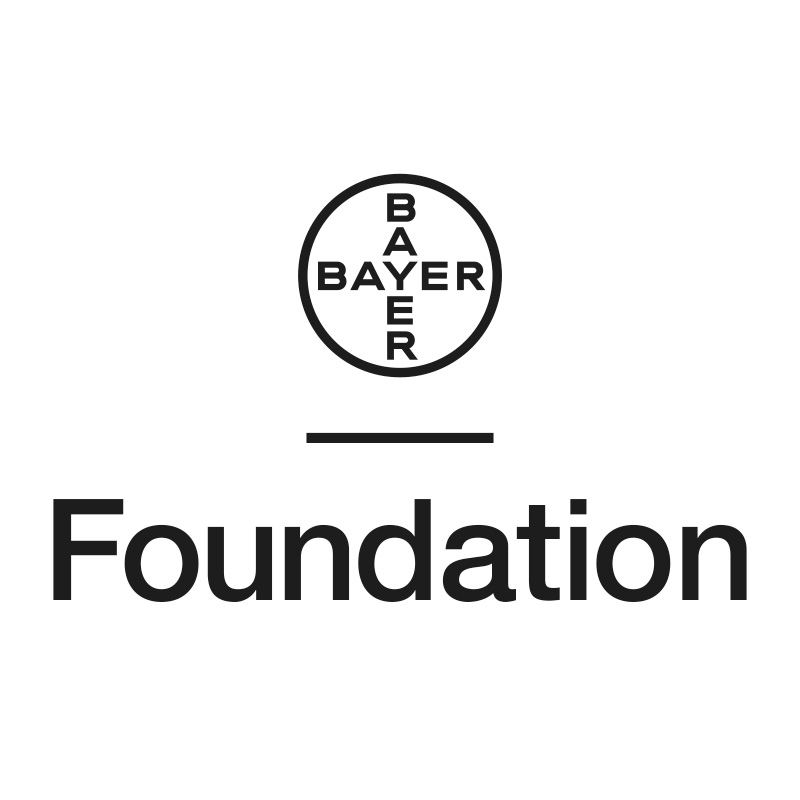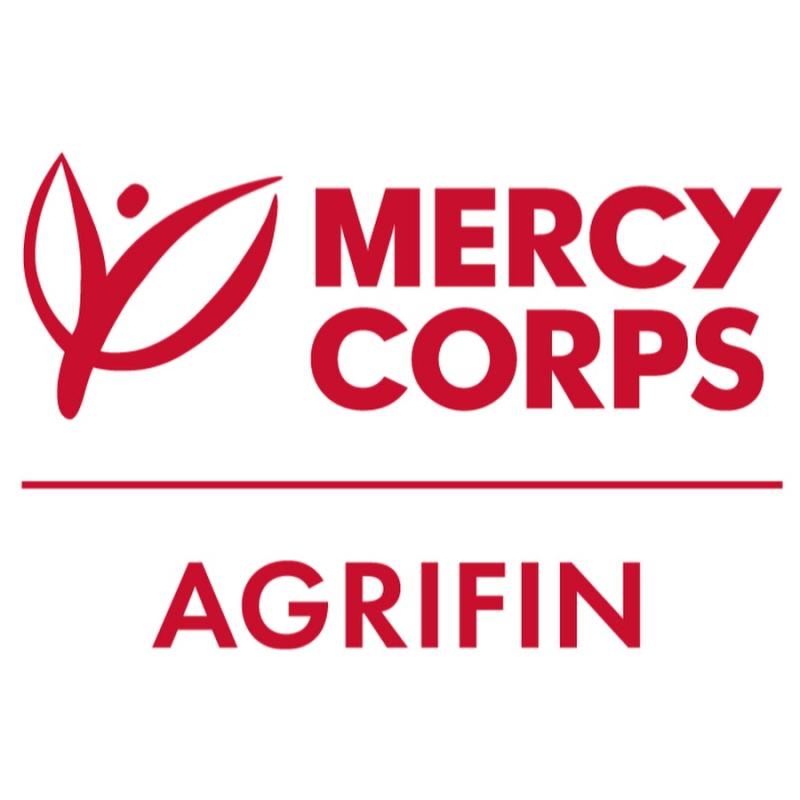Good things happen when the right partners find each other. If they don’t, gaps remain gaps; challenges remain challenges – or intensify.
The right partners, in this case, were Bayer Foundation and Mercy Corps AgriFin. These two organisations joined forces in support of smallholder farmers in the Global South. It wouldn’t have happened without common goals and a sense that impact can be shared.
People who are one drought away from poverty need solutions for building resilience into their farms – and fast, given the increasing frequency of climate shocks. Both Bayer Foundation and Mercy Corps AgriFin help solve such challenges for smallholder farmers through a number of different initiatives, but the focus of this story is how they improve the lives of these farmers through digital empowerment.
When smallholder farmers can access the full toolkit of digital solutions for agriculture, they stand a far better chance of mitigating climate risks, improving their quality of life and making sure when the next drought, storm or super swarm of locusts arrives, they’ll be more ready.
The tools of a smarter harvest are digital. It would take a catalytic grant to make sure these tools reached those who needed them.
The fund
Bayer Foundation has made the empowerment of smallholder farmers in Africa a part of its mission for more than five years. Funding to support this impact goal comes from Bayer Foundation’s Social Innovation Ecosystem Fund (SIEF). With a plan to disburse €20 million to social innovators, the fund “specifically targets pioneering technological and entrepreneurial solutions which empower African smallholder farmers and their communities to help lift themselves out of poverty.”
The SIEF was born out of a number of inspiring events, including the Skoll World Forum of 2o18-19. Stefan Wilhelm, Associate Director Social Impact – Public Affairs, Science & Sustainability at Bayer AG, commented on these origins:
“Based on existing strategic partnerships with high-impact organisations like Living Goods and myAgro, the concept was further developed as a larger philanthropic investment vehicle to grow ecosystems for smallholder farmer and community health worker support in Sub-Saharan Africa.”
Ensuring food security. Bolstering climate risk adaptation. These kinds of goals in support of smallholder farmers were foundational – and they represented a strategic alignment between Bayer Foundation and Bayer’s corporate sustainability strategy at large.
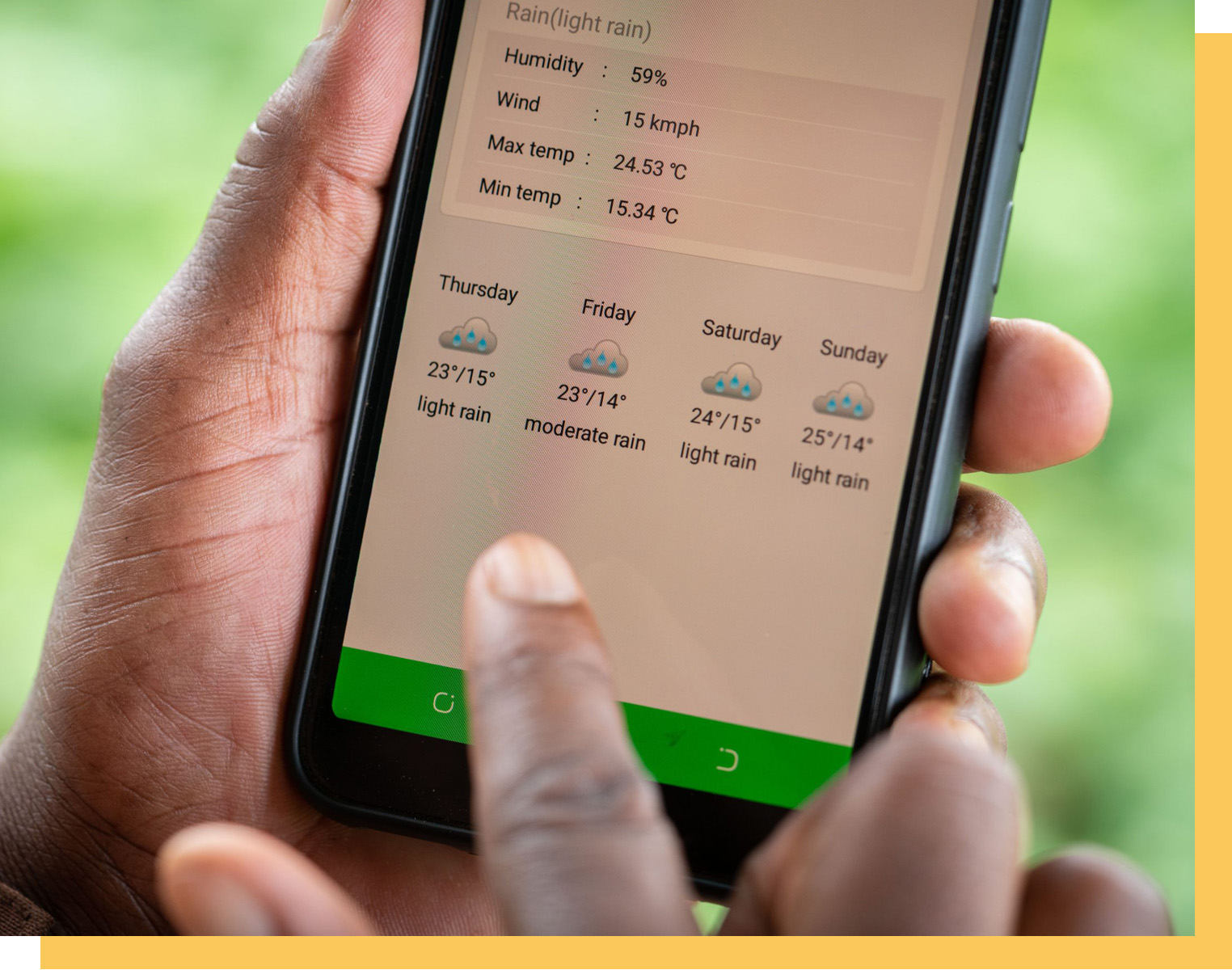
Going digital
For Bayer’s stakeholders in SIEF, the value of digital solutions for agriculture was identified early on as a means by which smallholder farmers could rapidly enhance their livelihoods. To do this, smallholder farmers need quick access to things like crop insurance, weather forecasts and mobile banking – all of which are aided by enhanced digitisation. The role of technology in improving the lives of smallholder farmers is “absolutely crucial,” according to Stefan.
“Be it access to information on pricing of products, insurance, weather forecasts or mobile money accounts and saving schemes: everything that is self-evident and assumed a ‘given’ for farmers (large and small) in the Global North is inaccessible for the vast majority of smallholders in the Global South.”
Enhancing digital access is a pragmatic approach that offers measurable improvements for smallholder farmers at an accelerated rate; as Stefan pointed out, digital scaling, “generates traceable positive results in relatively short amounts of time.”
The veterans
For a relative newcomer to helping solve the challenges of smallholder farmers, Bayer Foundation was quick to understand this group’s needs. Mercy Corps AgriFin, on the other hand, were seasoned veterans; the organisation has been active in the theme of financial empowerment through digital services since 2012.
Mercy Corps AgriFin supports “farmer-facing organisations to harness the promise of digital technology to expand critical services to smallholder farmers around the world.” By the numbers, that means support for 8 million people, who register for bundled services developed through the program and its 150 partners.
To give a sense of the impact, over the period of 2020-21, Mercy Corps AgriFin collected the perceived change insights from farmers who received their bundled services:
> Production: 73% reported increase
> Money Earned: 70% reported increase
> Change in Income: 70% reported increase
> Money Earned: 34% net increase
> Quality of Life: 77% reported improvement
> Recovery from Shocks: 53% increased ability
This is just a piece of the full impact of what we’ll refer to as Digital Farmer.
The hitch
Mercy Corps AgriFin fully intended to continue along the course of the first Digital Farmer initiative; in fact, they’d established several partnerships for the purpose of launching a second: Digital Farmer II.
But there was a hitch: one of the major grants would not take effect for over a year.
“While a large grant had already been promised to them,” said Stefan, referring to AgriFin, “they needed bridge funding for 1-2 years to be able to keep operations running and prepare the AgriFin Digital Farmer II (ADF II) program.”
The absence of such a grant would mean a year of stagnation in the progress Mercy Corps AgriFin had already made for smallholder farmers. A gap needed to be filled.
Filling the gap
Strong connections, common goals and a forum brought Bayer Foundation and Mercy Corps stakeholders together.
“Mercy Corps AgriFin approached us, following up on an earlier partnership discussion,” said Stefan, “and asked whether we’d be interested in partnering. Bayer Foundation’s Executive Board and Trustees, under the leadership of Dr. Monika Lessl, decided to support the initiative as a flagship project in the smallholder farmer area, frontloading a large portion of the grant to make sure that AgriFin stayed operational.”
Through this grant, Mercy Corps AgriFin did much more than just “stay operational.” According to Collins Marita, Director for Monitoring, Evaluation, Research, Accountability and Learning at Mercy Corps AgriFin, the grant helped in the bridging phase, making sure they were able to continue offering technical assistance to supported enterprises. In addition, they were able to, “commission and complete 10 engagements, that included providing digital roadmaps and platforms to increase access to climate information, enhancing credit scoring, provision of insurance as well as venturing into new counties like Zimbabwe and Rwanda. The 10 engagements reached over 400,000 smallholder farmers in the period.”
Bayer Foundation’s grant to Mercy Corps AgriFin was part of SIEF; the impact of this fund, according to Bayer’s impact reporting, grew to over 3 million people. The expanded scope of SIEF crossed the Global South, including the Middle East and north Africa, Asia Pacific, and Latin America. And, as a part of this expansion, ADF II “proved to be successful beyond the original expectations,” said Stefan.
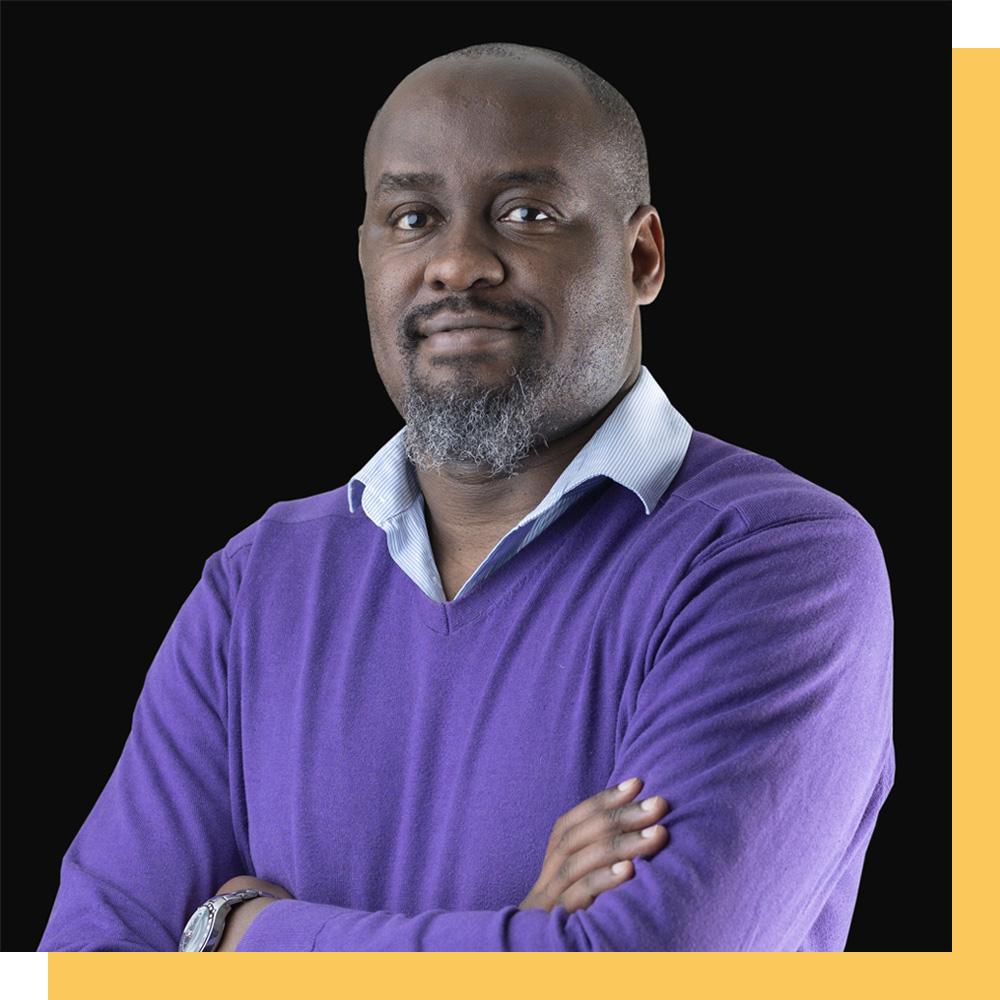
The grant also had a catalytic effect: “About a year into the first grant-period, the second donor stood by its promise and ended up providing 85% of the total grant volume. So even though our grant was much smaller, it enabled the whole project to come to fruition and leveraged more than 5 times its own value in co-funding,” said Stefan.
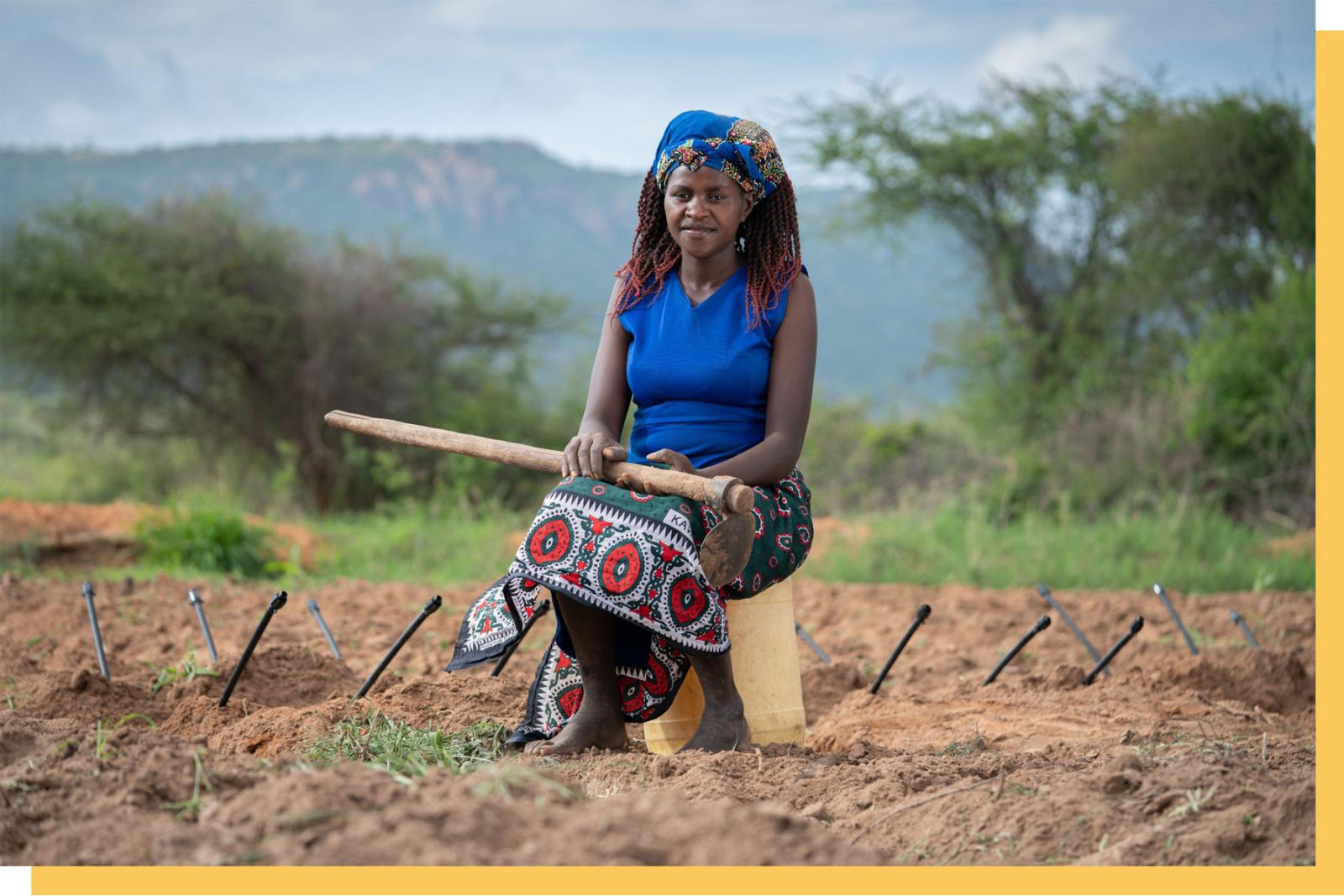
Her challenges
As of April 2023, more than 2.6 million smallholder farmers were registered with ADF II related service providers; 42% of these smallholder farmers were women. This percentage is notable given the fact that “her challenges” for accessing digital solutions are often steeper than “his.”
To give a sense of these challenges, and the way social innovations support solutions, Mercy Corps AgriFin, in partnership with CGAP, produced a fascinating working paper, outlining ten points where digital interventions can help women smallholder farmers. The following exploration – what her life might be like without these services – is directly informed by the paper (and re-cites its sources):
If she’s in a low-to-middle income country, she’s 7% less likely than her male counterparts to own a smartphone (GSMA 2o22a). That means she misses out on crucial weather services, banking, insurance and all the information she may need to make her life as a farmer easier.
The climate crisis introduces new risks to farming – droughts and extreme weather events, for example. This may mean she needs to access trainings on climate-smart agriculture. Improved seeds and fertilizers (“inputs”) can help improve crop yields and build resilience against climate shocks. Improved post-harvest storage, including community solutions such as shared storage spaces, can help her avoid crop loss. Yet she’s not going to be able to use any of these information resources to her advantage without proper digital access.
When it comes to getting her product to market, she’s still going to spend an outsize amount of money on the first mile – 20% of her total transport costs (ReCap 2015). She’ll keep losing money on this without digital services designed to aggregate and assist her transport logistics.
Without digital savings products, like banking apps made for the needs of agriculture, she’s less likely to have a savings cushion to absorb climate shocks; without access to credit networks, it can limit her farm’s ability to diversify crops and make upgrades; without digital financial services, there’s little hope of growing more efficient in the way she runs her farm. Without a strong digital network, she might not have an opportunity learn about crop insurance – so essential to mitigating climate risks – let alone access insurance products. Without a digital market, she has a greater chance of suffering unfavorable terms in the marketplace where she goes to sell her crops.
Solutions
As ADF II continues, it is ramping up efforts to provide more targeted solutions for these challenges. Gender inclusion is a focal point of Mercy Corps AgriFin’s work, according to Collins; as to how they target the needs of women:
“We ensure women farmers’ thoughts are accounted from the start through Human Centred Design. In the current phase of our programming, we aim to be more gender transformational, where we have developed a gender strategy and a gender transformative toolkit that’s a collection of tools to support farmer-facing organizations to design and deliver effective and inclusive products, services and partnerships for women smallholder farmers. With this we aim to have 80% of our investments being gender intentional and able to reach over 2 million women smallholder farmers with needed digital services.”
Speak of solutions
As for the larger pool of smallholder farmers who benefited from ADF II, Mercy Corps AgriFin collected the following direct quotes:
- On the increase in efficiency: “… I can now comfortably feed my family. I used to only harvest 3 bags of maize. Now, I can harvest up to 15 bags of maize. With this food provision, life has become a little less stressful than before, when we would sometimes lack enough food. I plant both beans and maize. These are the most staple crops in my area.”
- On the value of insurance products: “In case crops are destroyed by extreme rain or sun, I can get compensated. In the past, I have received good advice that has helped my crop production.”
- On the value of credit: “I have been involved for three years now, and they provide us with inputs (seeds, pesticides, etc.) on loan which, eliminates the need for having money up front.”
If Bayer Foundation and Mercy Corps AgriFin had never connected, these words would remain unspoken.
Pula's story
Pula, one of the enterprises supported under ADF II, “delivers innovative agricultural insurance and digital products to help smallholder farmers endure yield risks, improve their farming practices, and bolster their incomes over time.”
In an article in The New York Times, Co-founder Thomas Njeru outlined the significant hurdles faced for adopting agricultural insurance products in Sub-Saharan Africa: “Agriculture is a cemetery of pilots and trials,” he said. An environment such as this is just the right place for catalytic grant-makers to make their aid matter. According to Stefan, Pula was a standout example in ADF II:
“Pula’s insurance is free for smallholders, because they only work with third parties and governments. Since last year, they have been profitable and are now insuring close to 10 million smallholders across the region. Over the course of the 4-year grant period, at least 4 million smallholders in Sub-Saharan Africa (with a 48% women target) will receive digital products or services through the Agrifin ecosystem. Outperforming these numbers would underline the success of the overall approach.”
To put things in perspective, Pula is just one among many social enterprises ADF II supports. Such is the nature of catalytic grant-making: its impact is like seeds on the wind.
Reporting
To bring it back down to earth, Bayer Foundation closely tracked the impact of their grant. In fact, this reporting went on to generate interest outside of the Bayer Foundation offices; corporate stakeholders began to take notice.
Bayer Crop Science, which also runs an initiative in support of smallholder farmers, often hosts knowledge exchanges with Bayer Foundation, as both target similar groups.
“Building on an initial informal exchange,” said Stefan, “it became clear that our engagement with ADF II could be eligible as a contribution for Bayer’s SDG and ESG reporting, specifically for the annual report as well as the sustainability report as an initiative under the umbrella of non-commercial partnerships that contribute to Bayer’s overall goal of reaching 100 million smallholder farmers globally until 2030.”
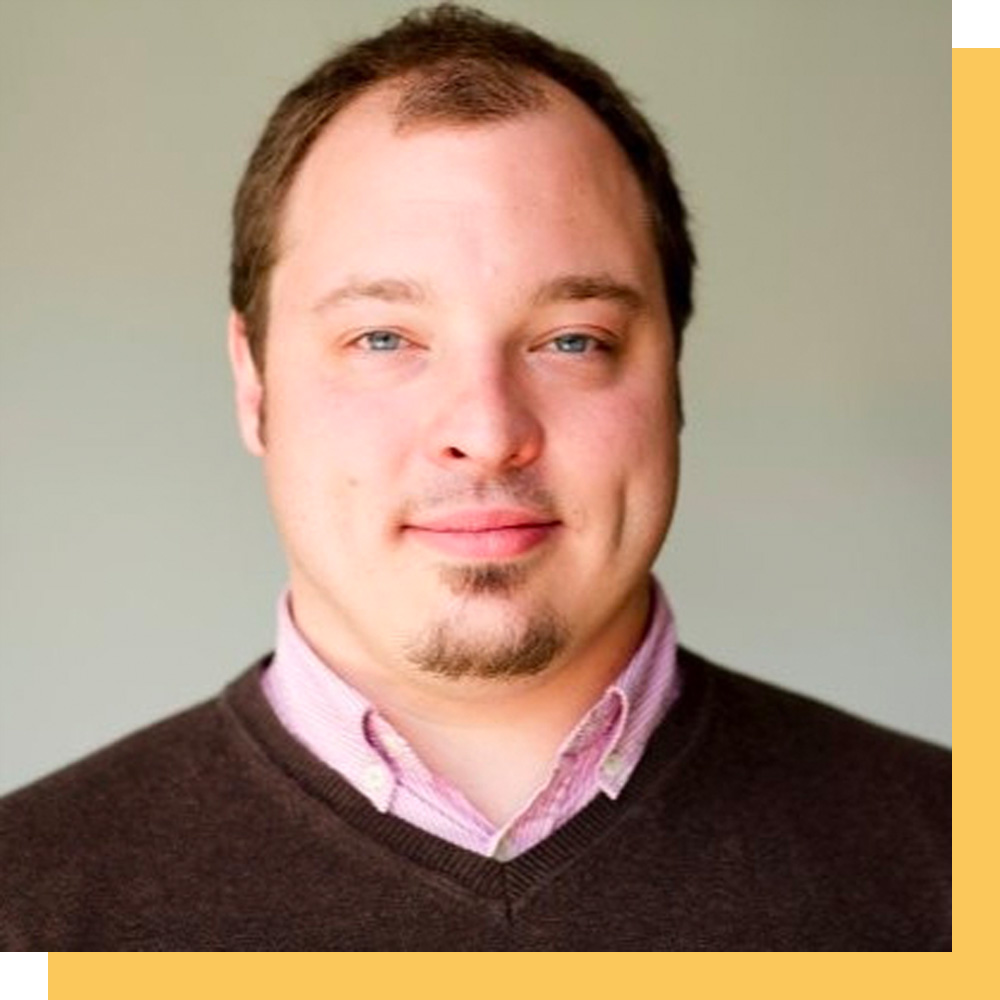
What followed was a number of data analyses, a continued exchange with the Mercy Corps AgriFin team to confirm findings and, finally, an external audit by Deloitte. The findings were ultimately featured in Bayer’s annual report:
“Over the course of four years, the AgriFin Digital Farmer II program is aiming to reach five million smallholder farmers in the region (at least 40% of whom will be female), boosting their income productivity by at least 50%. As of September 2022, the collaboration had outperformed its impact goals, with roughly 1.7 million farmers already being served.”
To be featured in the corporate annual report means visibility – that’s a good thing for spotlighting the impact of the foundation’s work to a wider audience.
It’s also an example of how boundary lines between the work of corporate foundations and corporate ESG and sustainability reporting are in a state of redefinition. There are many valid approaches for a corporate foundation’s relationship with its parent company, but safeguarding impact integrity under these circumstances requires close consideration.
Stefan has discussed these issues in-depth in EVPA publications and events alike. When asked his learnings from this particular project, he said:
“One key learning is, that ‘impact is for everyone’ and can be shared. It is crucial to break down internal silos as much as possible, because most of the time, the whole is more than the sum of its parts. Of course, it is labour intensive and sometimes cumbersome for the investee to have to discuss data collection and verification processes, etc., but at the end of the day, a positive audit result is also a valuable asset for the grantee. We are definitely planning to extend the collaboration, looking at the eligibility of foundation projects and programs not only in agriculture, but also in health and nutrition and across the Global South, adding considerable reach to Bayer’s overall SDG goals. In addition, the plan is to go from 'limited assurance’ to 'reasonable assurance' to demonstrate even stronger reliability of the impact.”
In other words, the impact audit process ultimately inspired concrete goals for increased certainty of the impact – a strong set of principles, worthy of note for anyone seeking to safeguard against impact washing in their organisation.
"Food in my house"
This matters when it comes to assuring that livelihoods for smallholder farmers are really improving. It’s hopeful to see that they are. As a farmer interviewed by Mercy Corps AgriFin put it:
“Because of their work I get a capital to start running a new business and I paid my children’s school fees without any worry. I also started rearing animals, all due to their help, and there is also availability of food in my house.”
Team up with those powering, accelerating and delivering impact at Impact Week in Torino in November!


